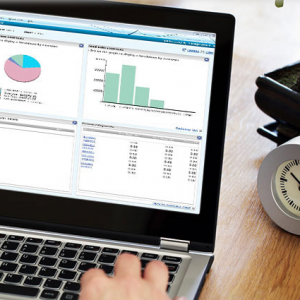Course Description
The Level 2 Certificate in Accounting is the most sought-after AAT qualification among students and is the ideal certification for individuals who are looking for a knowledge level to give them a firm foundation in the Accountancy industry. It is designed to teach students a range of accounting principles and techniques, from costing and double-entry bookkeeping to computerised accounting. The qualification has been developed to build your skills in finance administration.
Is it for me?
This is the right course for you if you have a good grasp of English and Maths and want to work in an accounting environment and need a formal qualification in the field. It is ideally suited to people who are new to accounting and finance and unqualified accounting staff who want to enhance their foundation knowledge and skills. The Minimum Age to enrol on this course is 18 years.
How is it assessed?
There are five elements to this qualification as follows:
- Bookkeeping Transactions
- Bookkeeping Controls
- Elements of Costing
- Using Accounting Software
- The Synoptic assessment (incorporating Work Effectively in Accounting & Finance)
There are five separate exams for this qualification, culminating in the Synoptic assessment which is a test that implements the skills learned and putting that knowledge into practice. Once each element of the course is complete, the student can use the AAT practice exams which are available on the AAT website.
How can I use it?
The course provides many different options for further study, as well as leading to employment in roles such as Accounts Administrator, Accounts Assistant, Accounts Payable Clerk, Bookkeeper, Payroll Administrator, Payroll Officer, Purchase/Sales Ledger Clerk, Tax Assistant/Trainee or Trainee Accounts Technician.
KEY LEARNING POINTS
- Understanding an organisation’s cost recording system and using it to record or extract data.
- Use of spreadsheets to convey information on actual and budgeted income and expenditure.
- Entering data at the start of an accounting period to set up customer and supplier accounts in accounting software.
- Recording and processing customer and supplier transactions.
- Recording and reconciling bank and cash transactions.
- Processing and using journals to enter accounting transactions.
- Production of reports.
- Understanding an organisation’s accounting or payroll function.
- Using numeracy and literacy communication skills.
- Working independently or in a team to prioritise tasks and manage colleagues’ responsibilities.
- Understanding ethical values, principles and importance of confidentiality.
- Understanding and explaining benefits to organisations of sustainable values.
- Understanding double-entry bookkeeping, integrating books of prime entry and describing coding system functions.
- Understanding discounts and settlement, trade and bulk discount differences.
- Preparing and processing customer and supplier invoices and credit notes.
- Totalling and balancing a 3-column analysed cash book.
- Totalling, balancing and reconciling petty cash records within an analysed petty cash book.
- Processing ledger transactions and extracting a trial balance.
- Understanding the purpose and use of control accounts and journals.
- Maintaining and using control accounts and the journal.
- Reconciling a bank statement with the cash book.
- Understanding the banking process and main services of banks and building societies.
- Understanding requirements of retention and storage relating to bank documents.
ADVANTAGES OF THIS COURSE
- Study wherever you like at a time that suits with you with 24/7 access for 12 months.
- Course content is compatible with all devices.
- Tutor support is included for ease of learning.
- Sage 50 Accounts Professional software included (180 days).
- Gain 2 recognised certificates.
- AAT Foundation Certificate in Accounting (Level 2).
- Sage 50 Accounting Software at Level 2 (issued by Sage).
- Technical support available 24 hours a day, Monday to Friday through the entirety of your course access.
- Study the industry recognised AAT syllabus and use it to give you the best possible start to your accounting career.
- 97% of full members would recommend the award-winning AAT.
- Self-paced study means you’re in total control of how quickly you progress.
- All course content is designed in collaboration with employers, drawing on the real-world skills they require from employees.






